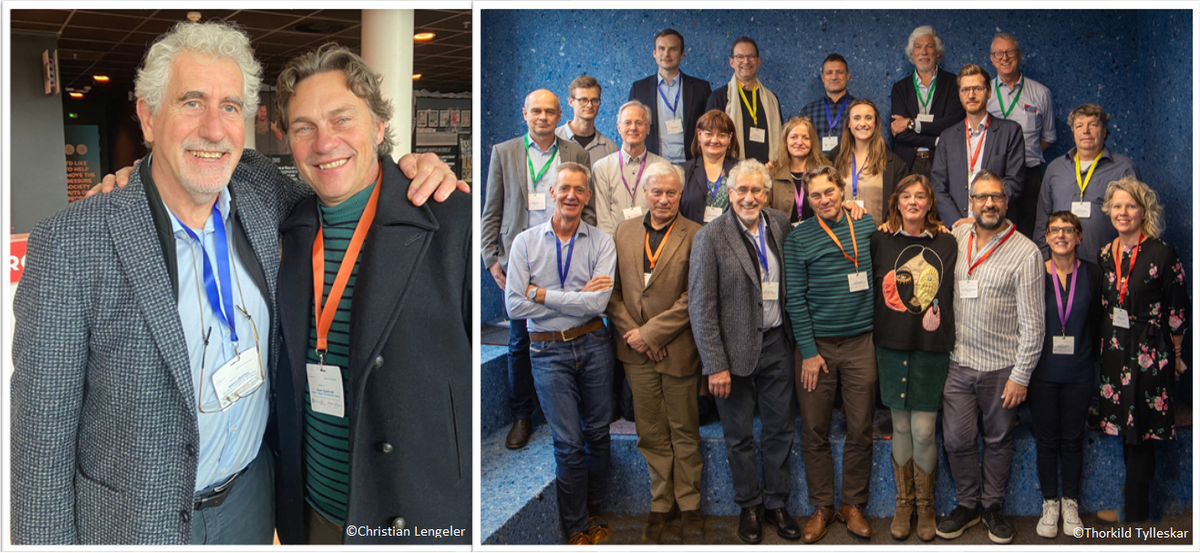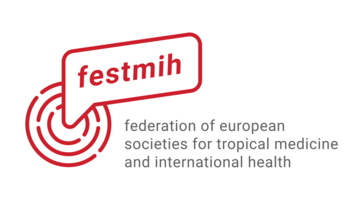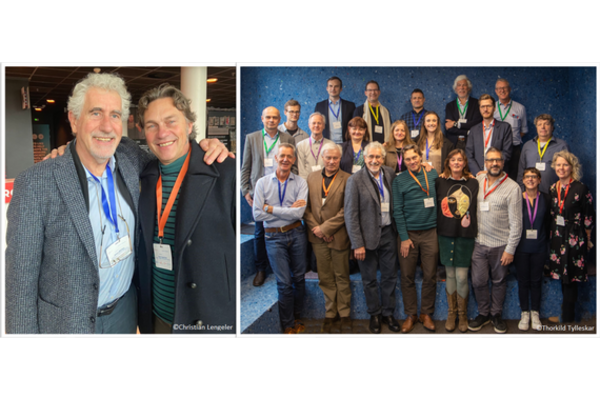
New Chair and Board for FESTMIH
At the ECTMIH 2023 the new Chair of FESTMIH was announced. Dr Marco Albonico took over from former Chair Dr Karel Gyselinck who has tirelessly dedicated the past 7 years in forging and guiding FESTMIH. Marco Albonico has been an active delegate from the Italian Society of Tropical Medicine and Global Health (SIMET) to FESTMIH since 2017 and has been invested of the Chair’s challenging role in the closing ceremony of the 13th ECTMIH in Utrecht. Marco acknowledged SIMET, a small but dynamic society, and accepted with proudness the honour to keep the helm of FESTMIH in the next years. He remarked two key words which came out as expectations in the opening of ECTMIH 23: networking and collaboration. FESTMIH is indeed a proactive network and its work is based on close collaborations: there is a solid Board composed by dedicated scientists: Charlotte Adamczyk and Rosie James (co-vice chairs), Karel Gyselinck (treasurer), Esther Jurgens (advisor), Guus Eskens (advisor), José Muñoz (advisor), Sophie Schneitler & Sören Becker (coordination and secretariat) from the Institute of Medical Microbiology and Hygiene at Saarland University (Homburg, Germany). But most importantly, the Federation is made by many health professionals: the 15 European societies of tropical medicine and global health which are part of FESTMIH include more than 6000 members.
FESTMIH towards 2025
In the ECTMIH 23 closing ceremony Marco Albonico shared his vision of FESTMIH towards 2025, playing with its acronyms.
F like Fragile communities, Forgotten health. We as Federation take care of neglected communities, fragile contexts, including neglected health in conflicts. We advocate for health for peace and peace for health; health as a public good that leads towards peaceful societies.
E like Environment. Climate change, but also biodiversity loss, food crisis, environmental pollution, refuse disposal are all nature challenges which are now global health emergencies.
S like Science. We promote science, the basis of our knowledge as scientists, - put at stake during Covid pandemic-, as an instrument of political and social change.
T like Tropical? Does tropical medicine still exist? We have to move from the colonial heritage -terminology towards a process of decolonization of tropical medicine and global health.
M like Migration. Migrations are epochal unstoppable movements that have been there for decades. We should not deal with them as an emergency, but we have to manage the influx of migrants safeguarding their rights to health, considering migrants fragile communities in our wealthy yet non-inclusive European societies.
I like Inequity. Global health is about equity and justice; creating fair societies; realising the right to health.
H like Health. Moving from “Health for all”, through “One Health”, to “Global Health” and towards the health of our planet.


